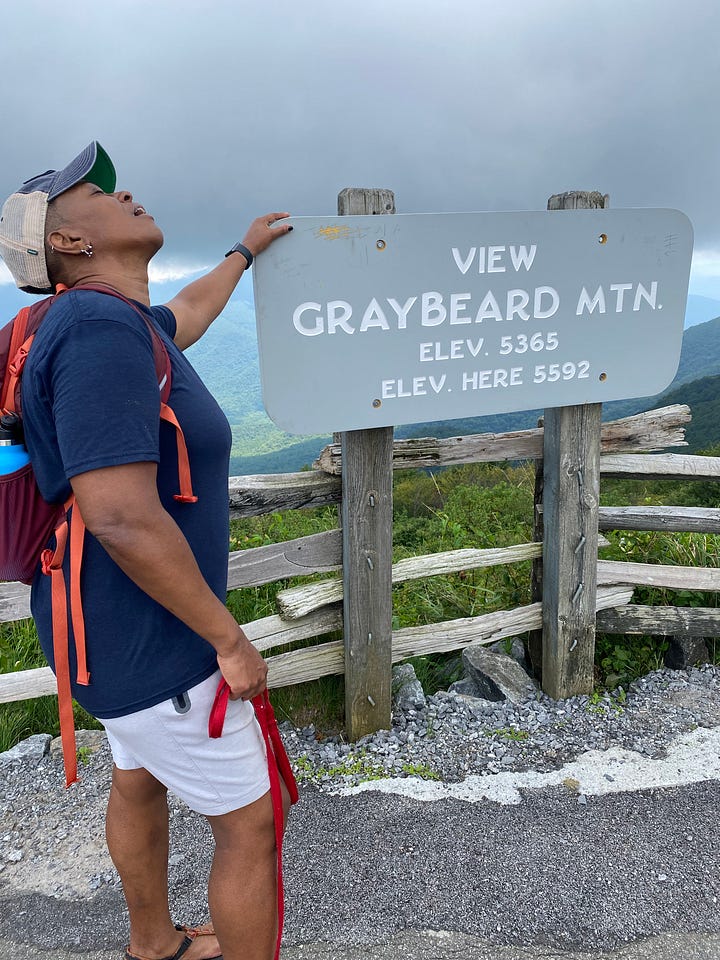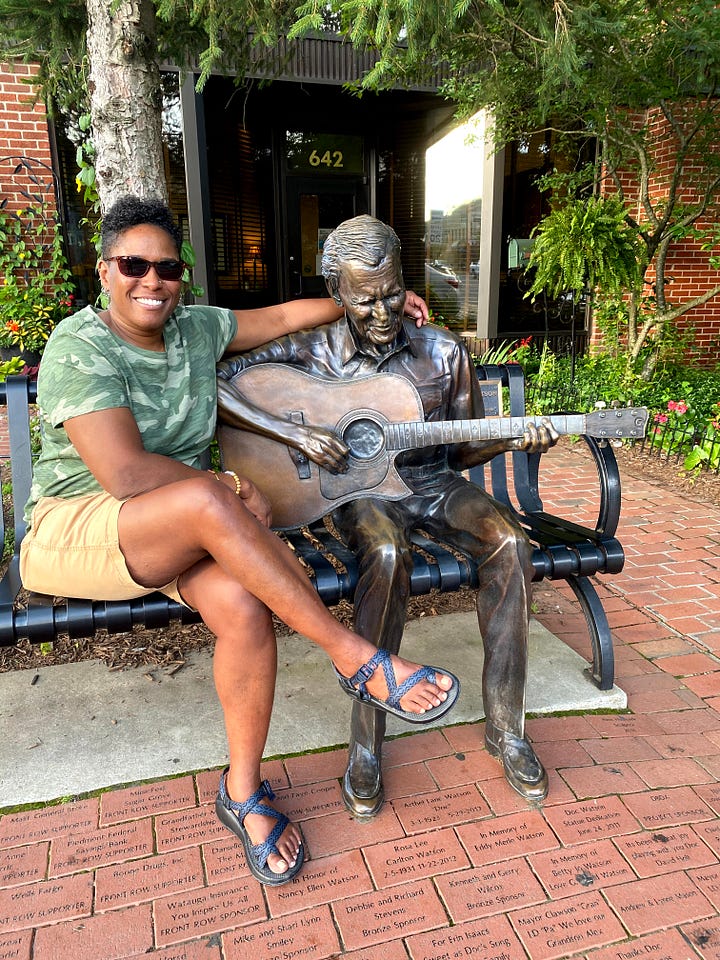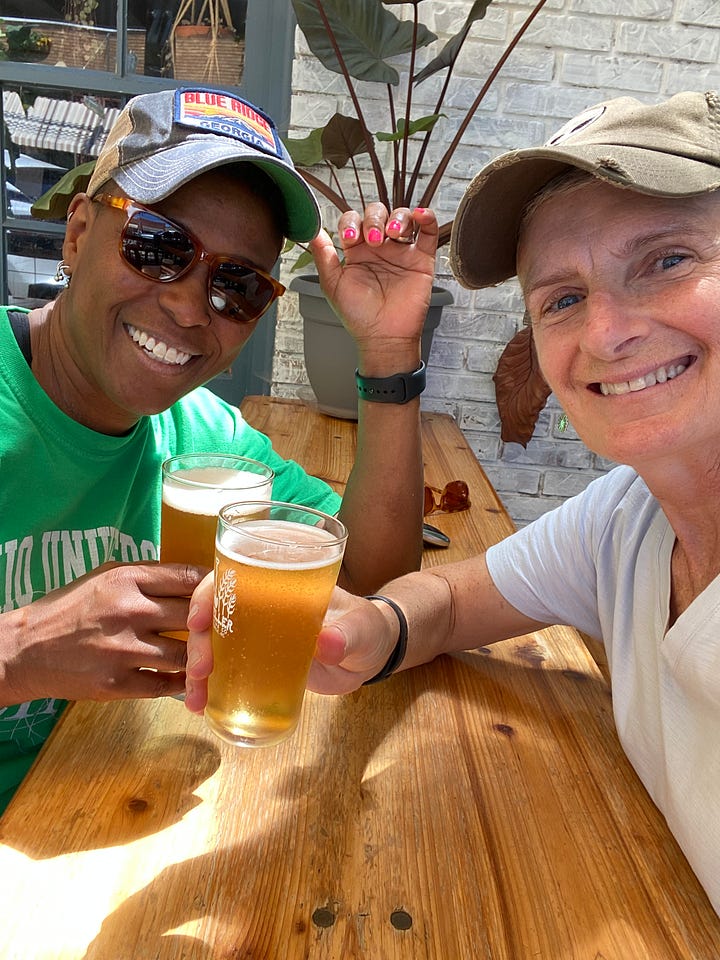



As we head into Yom Kippur, I'm thinking about the Mountains of Western North Carolina. Susan and I love the mountains of North Carolina. In fact, we were supposed to be in Boone, NC, today, a part of the area devastated by Hurricane Helene. We love that area so much that we visit it several times a year. We hike, drink beer at local breweries, and enjoy the food and mountain air. And, as I reflect, I know we have only lost a vacation spot while so many others have lost nearly everything. And my heart breaks for what I've seen and the devastation left behind.
This Yom Kippur, I'm thinking about those people and our planet.
In Judaism, caring for the earth is a sacred responsibility. Our tradition reminds us that we are to be stewards of the planet.
Midrash Kohelet Rabbah (7:13) vividly depicts this responsibility: "When God created the first human, God led the human around all the trees of the Garden of Eden and said: 'Look at My works, how beautiful and wonderful they are! And all that I have created, I created for you. Be careful not to spoil or destroy My world—for if you do, there will be no one to repair it after you.'"
This teaching makes it clear: we are responsible for the earth, and neglecting this duty is a betrayal of the trust bestowed upon us by the Divine.
The climate crisis we're facing today is a direct violation of this core Jewish value. Every wildfire that rages out of control, every hurricane that wipes out homes and lives, every drought that leaves fields barren—they're all cries from a planet that's is being pushed beyond its limits. And yet, we still have leaders who deny the existence of climate change or refuse to act, treating the planet and the lives of its inhabitants like pawns on a chess board.
In the wake of two back-to-back destructive hurricanes, Helene and Milton, the urgency of this crisis has become even more real. Hurricane Milton struck before people could even finish cleaning up after Helene. We have lost hundreds of lives unnecessarily due to the warming of the planet and the irresponsibility of elected officials.
We cannot afford to elect leaders who deny the reality of climate change. We cannot afford any more leaders who turn a blind eye to the devastation that is unfolding around us. Our planet is burning, our cities are flooding, and the signs of environmental collapse are everywhere. Climate change isn't a future problem. It's happening right now, in real-time.
It's heartbreaking and, frankly, infuriating to see politicians continue to prioritize short-term gains over long-term survival. Rolling back environmental protections, dismantling regulations that help reduce carbon emissions, and shrugging off the suffering of people directly impacted by climate disasters are actions that put us all at greater risk.
This is about more than just saving trees; don't get me wrong, trees are critical. It's about ensuring that our homes, our communities, and our lives can continue to thrive. Leaders who deny climate change are dangerous because they are gambling with our future. And we don't get a second chance at this. We are at a critical juncture, and the time for action is now.
We need to elect leaders who understand that climate change is an urgent crisis, not just a talking point. We need leaders who will confront it head-on, not one who passes the burden to the next generation. Our Jewish values demand that we protect this world, and as we look to the future, we must insist that our leaders share in that sacred responsibility.
Let's choose leaders who will act before it's too late. Our future, and the future of the world, depends on it.
Taking Action: How We Can Be Better Partners to the Planet
This isn’t just about our leaders—it’s also about how we take responsibility as individuals. Here are a few simple and practical things we can all do to be better partners to the planet. And if you’re already doing these, that's amazing! And there’s always more we can do:
Reduce your carbon footprint: Turn off lights when you leave a room, unplug devices when not in use, and try to walk or carpool when possible. Small changes in daily habits can have a big impact over time.
Eat less meat: Incorporate more plant-based meals into your routine. You don’t need to go vegetarian—just cutting back on meat a few times a week can significantly reduce your environmental footprint.
Cut down on single-use plastics and recycle: Use a reusable water bottle, bring your own bags to the store, and recycle whenever possible. It’s about making small, consistent changes that help reduce waste.
If we all take small steps over time, we can make big differences together. This Yom Kippur, as we remember the ways we’ve missed the mark, let’s also reflect on how we can do better for our planet. Both for the people directly impacted by climate disasters and for the generations to come. The earth is in our hands, and it’s time to act.
My birthday is coming up, and my one birthday wish is that, if you haven’t already, please follow me on Spotify or wherever you stream music. I have more music coming out soon, and if you haven’t listened to my latest releases, “Boker Tov” and “What Does Faith Mean,” please give them a listen.
If you’re a free subscriber to this newsletter, consider becoming a paid subscriber, and don’t forget to share it with others. I want to continue putting diverse Jewish voices into the world, and your support helps make that possible.




Rabbi, thank you for this powerful and timely essay. We must all care for the earth 🌎🌍, as it is our home 💗🏡 and there is no other.